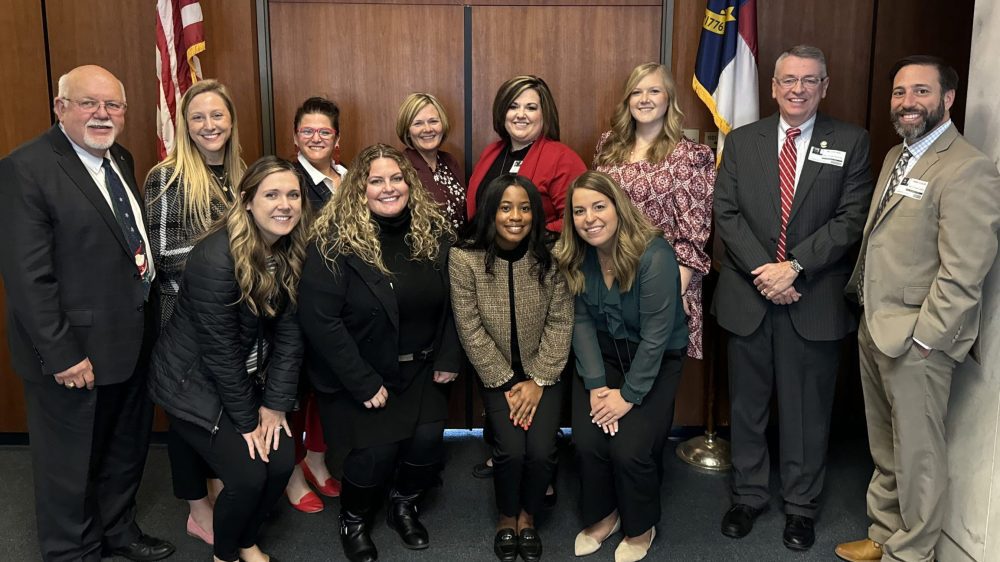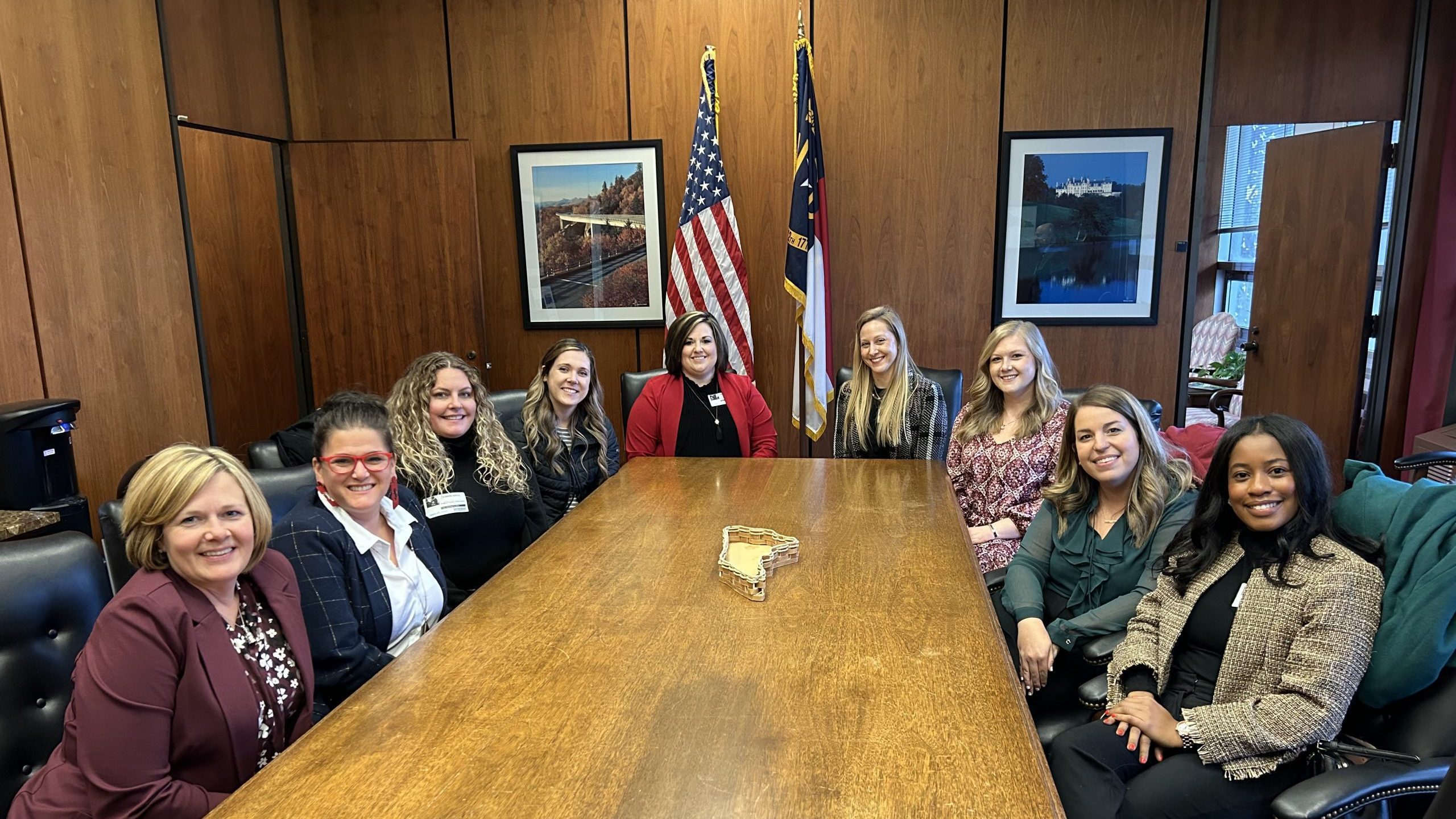Superintendency Meets Cooper

On December 8, 2023, the Ed.D. in Educational Leadership, P-12 Superintendency concentration students visited Raleigh, NC, the state capital, and met with Governor Roy Cooper. Dr. Walter Hart, Superintendency Coordinator, and faculty Dr. Jim Watson and Dr. Jamie Kudlats organized the trip for first-year superintendency students. Dr. Walter Hart and students Nicole Lawson and Melissa Larkin discuss the experience.
Why does this type of educational opportunity matter?
Dr. Hart shared that the Raleigh trip focused on understanding educational governance in North Carolina and provided doctoral students with an engaging and authentic learning experience. They met and interacted with policy influencers such as Elizabeth Yelverton, Legal Affairs and Policy Manager for the North Carolina Association of School Administrators, who led a presentation about legislative affairs and educational advocacy. Geoff Coltrane, Education Advisor to Governor Roy Cooper, discussed the state’s educational governance structure and gave students a tour of the Department of Instruction and surrounding administrative buildings. Allison Schafer, Legal Counsel and Director of Policy for the North Carolina State Board of Education, presented an overview of recent education policy and the operations of the state board. Governor Roy Cooper led a discussion about education policy and school finance in the state. According to Nicole Lawson, first-year doctoral student, the presenters “were all very knowledgeable on bills and policies and were able to highlight the most significant changes we will start to see as leaders. They gave us resources to take back to our district and ways to continue to advocate for education.” Dr. Hart shared that since many superintendency students aspire to become school district leaders, they need keen insights into education policy issues.
What are the two most pressing issues faced by new school leadership in NC?
Dr. Walter Hart shared that critical issues faced by North Carolina school leaders include underfunding public schools and the shortage of trained, licensed teachers, among our state’s two most significant educational challenges. When adjusted for inflation, per-pupil funding in North Carolina is lower now than a decade ago despite a recent North Carolina Supreme Court ruling that education funding was inadequate to provide a sound, basic education for all students. Also, school districts face a looming fiscal cliff because of the upcoming loss of federal Elementary and Secondary School Emergency Relief Funds that helped stabilize schools during the pandemic. Related to this underfunding is the fact that our state is unable to fill thousands of vacant teaching positions each year with trained and licensed teachers. Even as teacher attrition increases, principals regularly report that they cannot find applicants for vacant teaching positions.

How do experiential learning opportunities, such as the trip to Raleigh, enhance doctoral education?
According to Dr. Hart, in addition to building cohesiveness in the doctoral cohort, the Raleigh trip helps close the gap between theory and practice by enhancing students’ awareness and understanding of the governance and policy issues shaping education. It also illuminates the essential role that educational advocacy can play in our political system. “We rarely, if ever, get the opportunity to be in the governor’s presence and hear what matters to him and his team,” according to Nicole Lawson, a first-year doctoral student. Melissa Larkin expressed her excitement about “how many people are doing the work for our state’s education system right now and want to connect with us to continue working together in the future!”

What other opportunities would you like to see doctoral students experience?
Dr. Hart welcomes opportunities for our students to participate in state and national conferences. According to Melissa Larkin, the key takeaway of the trip to Raleigh allowed her to meet with and learn more about advocacy, current legislation, and best leadership practices. She shared “we were lucky enough to spend time talking with the governor and getting his perspective on the current state of education in North Carolina.”
For her peer Nicole Lawson, the trip highlighted the “education focus” of Governor Cooper. “His most significant role model for education was his mother. “He understands the need for teachers to get paid more and the concerning foreshadowing of our educational system as legislators continue to put money towards vouchers. He appreciated his team’s work in public and behind the scenes to stay on top of some of the troubling educational decisions and policies. He believes in public education, and it shows.”